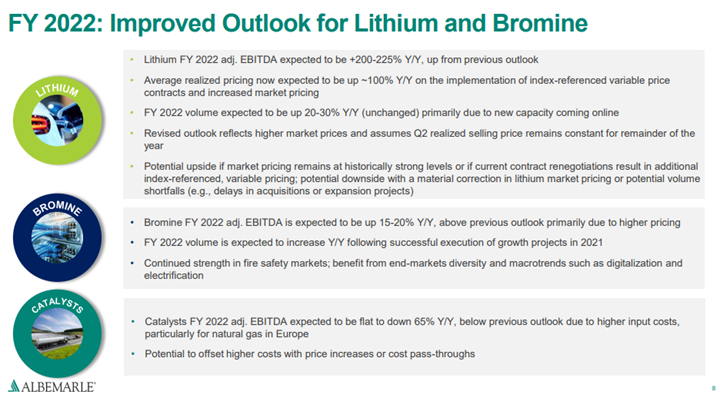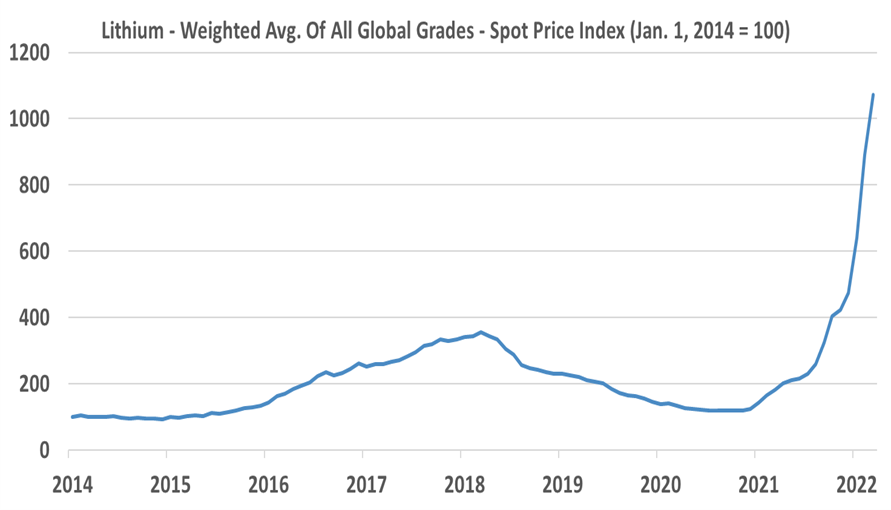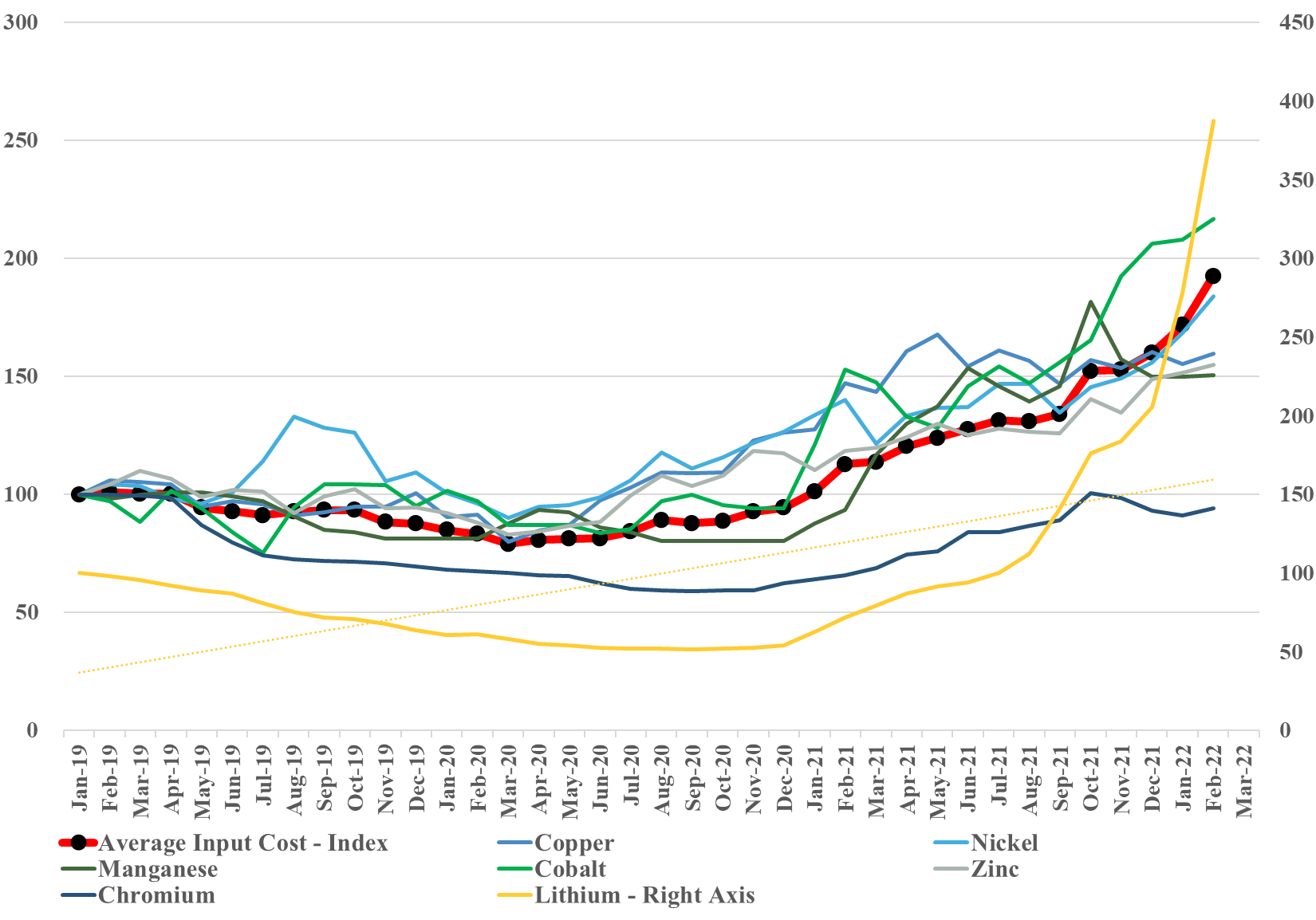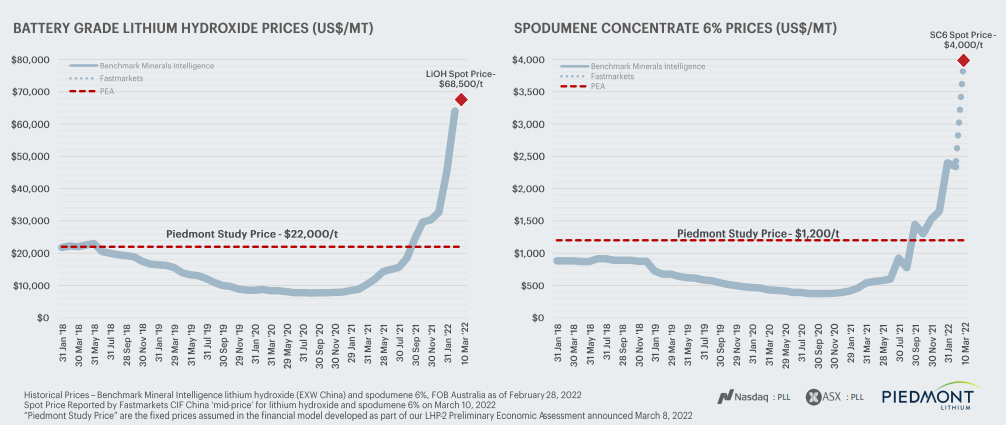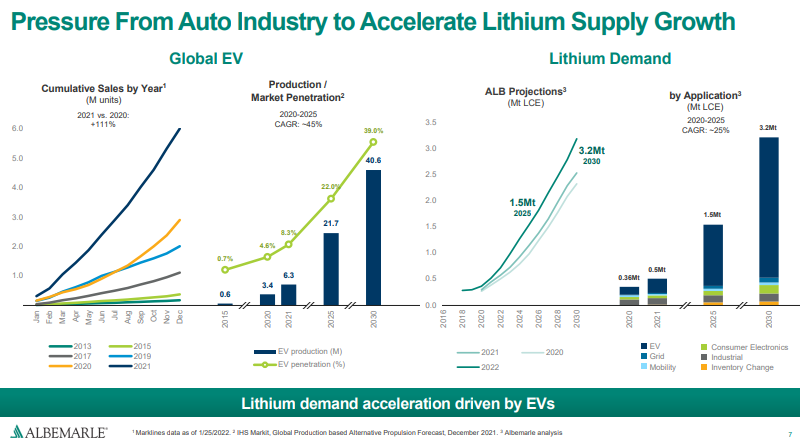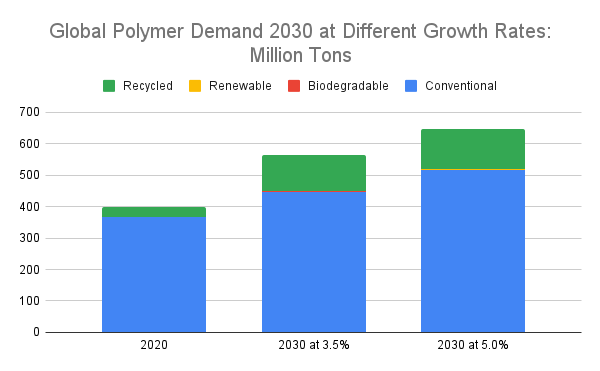We should not be surprised by the blow-out earnings this week from Livent and Albemarle, as our “critical metals” analysis has been highlighting the runaway prices for lithium all year. This price rise has a much more profound impact on the current suppliers than the start-ups that either have minimal volumes to sell today or none at all. Both Livent and Albemarle were established players in lithium long before the current hype. The higher valuation for Albemarle is both a blessing and a curse in our view as the company is now a little hamstrung with respect to further portfolio changes, given that no one will pay as much for the catalyst and bromine businesses as is reflected in current valuation. You would need to be very convinced that the more focused lithium portfolio would see a further step up in valuation multiple to account for what would inevitably be earnings dilutive divestments.
Lithium Price Strength Persists, Spurs Investment
May 5, 2022 12:36:45 PM / by Cooley May posted in Chemicals, Metals, Lithium, minerals, logistic issues, bromine, Albemarle
Lithium Supply Fails To Keep Pace With Demand - A Familiar Commodity Story
Apr 12, 2022 12:20:28 PM / by Cooley May posted in Chemicals, Commodities, Supply Chain, Lithium, EVs, Supply, capital spending, Lithium supply
Lithium prices keep rising. We refer back to some work we did on the subject several months ago, where we predicted that lithium was likely to be a cyclical commodity - eventually. Right now we see demand for new EVs, demand to fill the supply chain for new EVs, and demand to fill the supply chain for new battery factories – and consequently, demand is likely overstated relative to the number of EVs leaving production lines. In lithium’s favor, EVs are surprising on the upside in production and sales, but this will add to the need to fill supply chains. We do not see the lithium bubble bursting soon, but we do not see enough barriers to entry for lithium to protect the product from overbuilding. There are many dilute lithium sources, and high prices could allow for some high-cost options to move up the learning curve and become future low-cost options.
Commodity Shortage - It's Not Just Oil
Mar 23, 2022 2:27:41 PM / by Cooley May posted in Chemicals, Commodities, Metals, Oil, natural gas, Lithium, Shortage, commodity chemicals, fertilizer, nickel, World Petrochemical Conference, WPC, crops, crop protection
One of the key messages from the World Petrochemical Conference is that it is not an oil shortage, it is a commodity shortage, and we show our key metals index (updated through February) again in the chart below. We will update this again at the end of March (when consistent data is available) and given what has happened to both lithium and nickel prices we would expect a jump in the March index.
Runaway Prices Unlikely in Plastics, Like in Metals, Without Energy Related Plant Closures
Mar 16, 2022 11:55:17 AM / by Cooley May posted in Chemicals, Polymers, Polyethylene, Plastics, Energy, Metals, Raw Materials, renewables, Basic Chemicals, Lithium, crude oil, nickel, metals pricing
Could what we are seeing in metals happen in chemicals and polymers? Over the last few weeks, we have seen already high metals pricing spike even further, both because of production shortfalls and because of expectation of higher demand, especially in the renewables space, as conventional energy prices have spiked. We show a lithium example below, but note that after chaotic nickel trading last week and a halt to trading, the market has made some attempts to reopen this morning with renewed problems.
Even Some Of The Best Stories Are Being Hurt By Inflation
Feb 17, 2022 12:56:01 PM / by Cooley May posted in Inflation, Lithium, EV production, inflationary pressure, capital costs, Albemarle
Albemarle’s share price is tumbling today on the news that the company is experiencing cost over-runs in its lithium business and that this resulted in a 4Q loss. The company has tried to deflect with some very bullish views of potential lithium demand, based on EV production growth estimates, but the cost over-runs are another indication of how much inflationary pressure is within all industries today and this news will likely have a negative sentiment impact for any company with material capital spending plans for 2022. The loss at Albemarle comes despite higher lithium selling prices for existing output. We remain very concerned that, despite high capital costs, the technology barriers to entry for the more commodity grades of lithium required for most batteries are very low, and that with the hype around potential demand – as indicated by Albemarle – too much lithium capacity will be built, ultimately causing wild swings in prices. If we get a negative swing in pricing coincident with new capacity start-ups, where the new capacity cost more than planned, we could see some poor returns on investment periods during this decade. To be clear, we expect lithium demand to grow very quickly, but we expect supply to grow quickly also. See more in today's daily report.
Lithium Is Not The Only Material We Need More Of...
Sep 30, 2021 2:45:02 PM / by Cooley May posted in Chemicals, Polymers, Energy, natural gas, solar, renewables, wind, Lithium, conventional polymers
We have discussed a theme around shortages that has been going on for months and is prevalent in many of the headlines today. It has also been a central theme of much of our energy transition work, as we think about the raw materials needed to meet the demand for solar and wind power as well as the infrastructure for hydrogen generation. The exception is lithium, where we see regular announcements around expansion projects, such as the one linked from Albemarle. The EV makers and battery storage manufacturers are doing an excellent job of encouraging investment in lithium, taking stakes in battery projects, and in some cases taking stakes in the lithium projects themselves. Offtake agreements also help projects get funding. We suspect that the offtake agreements are tactical – not aimed at buying out a source of lithium or a source of batteries but aimed at ensuring that a surplus of capacity gets built, to ensure no bottlenecks in the future.


